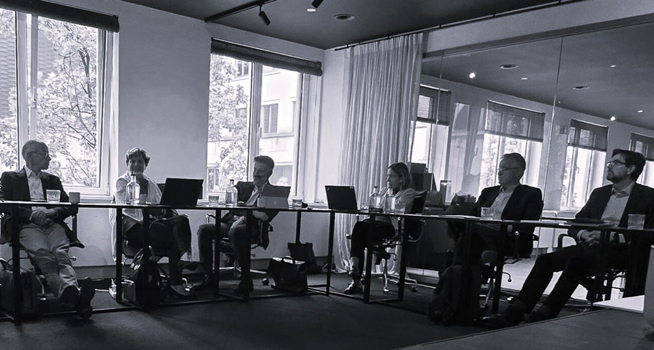On October 16, Glass for Europe (GfE) held its Autumn Board of Directors meeting at the Industrious Business Centre in Brussels. Although unintentional, the business centre’s name underscored the key issue dominating the discussion: the severe competitiveness challenges currently facing the flat glass industry and the concerns about Europe’s ability to sustain its industrial edge.
With a new legislative term and a fresh European Commission mandate on the horizon, Board members emphasized the critical role Glass for Europe must play in the upcoming months. They stressed the need for European decision-makers to recognize the gravity of the competitiveness crisis and to prioritize policies and regulatory updates that will enable Europe’s flat glass industry to continue producing the essential glazing products required for the EU move towards its climate-neutrality goal.
Several core issues were discussed, many of which are highlighted in Mario Draghi’s recent report on the future of European competitiveness. These include the harsh impact of high energy costs, loopholes in the Carbon Border Adjustment Mechanism (CBAM), burdensome administrative requirements, and a global shortfall in investments. Additionally, the lack of support for industries where viable decarbonization options are still under development is a significant concern. Glass for Europe is committed to support EU authorities in the development of solutions to address these challenges and enable the ‘sustainable transformation’ of Europe.
The Board meeting also provided an opportunity for Glass for Europe to collaborate with partners and member companies across the entire flat glass value chain. Together, manufacturers, processors, transformers and insulated glass unit (IGU) manufacturers discussed shared challenges and strategies for tackling the issues impacting the entire industry.




